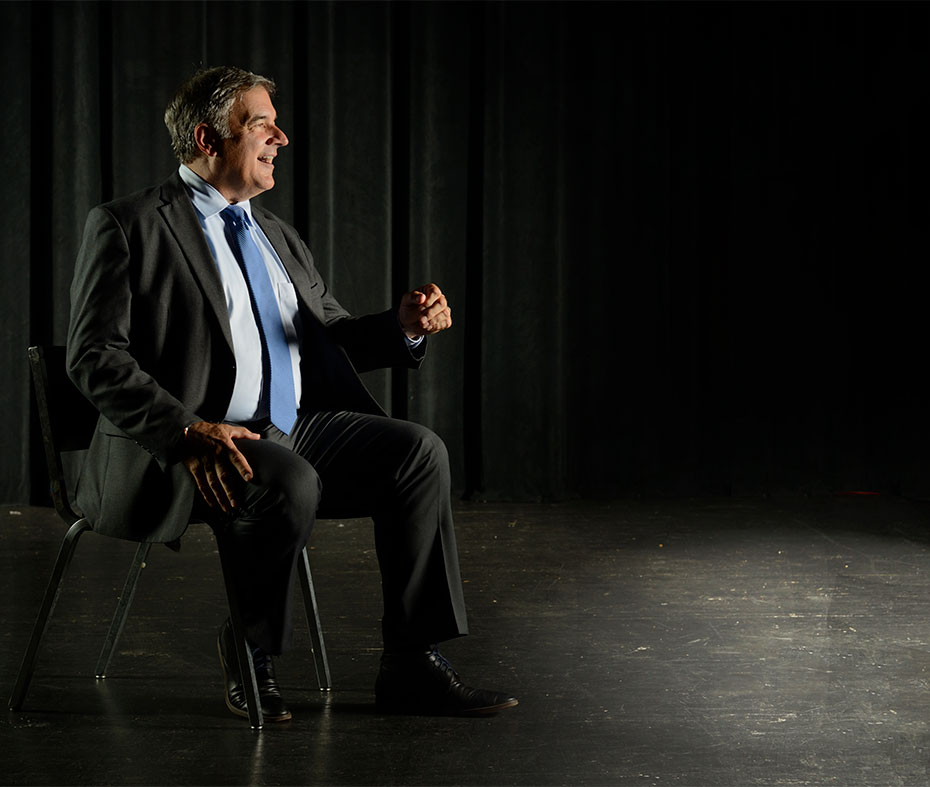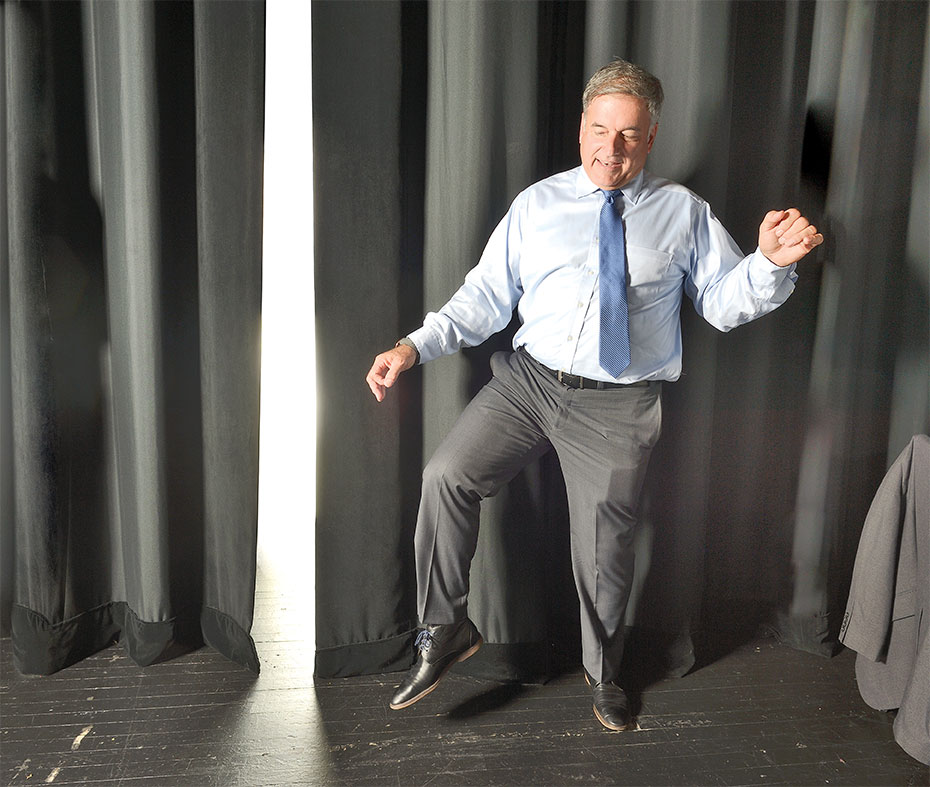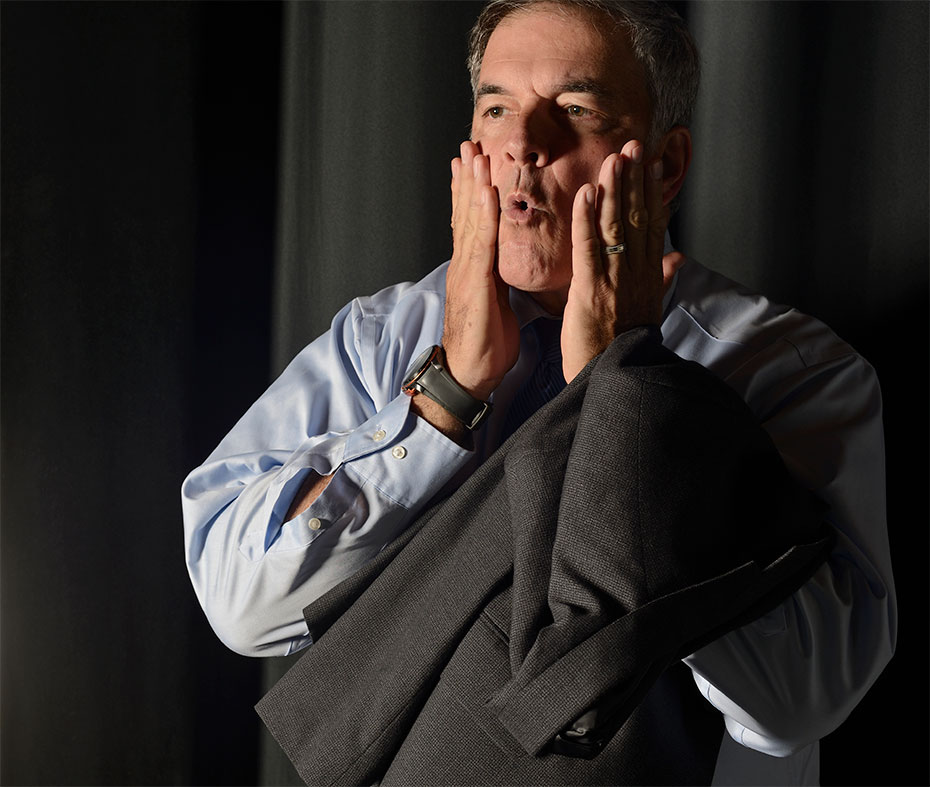Video by Gabrielle Minnich
Commanding attention
by Jesse Tuel
When Associate Professor Greg Justice isn't directing plays and teaching acting classes at Virginia Tech, he's engaged in an artistic form of outreach: showing Fortune 500 executives, teachers, professional speakers, interviewees, and others how to employ acting techniques to command audience attention. In the Alumni Association's 100 Days 'til Graduation program, Justice has shared tips with graduating seniors; this summer, he spoke at Nashville and Knoxville alumni chapter events.
Words, Justice said, convey a mere 10 percent of meaning, while our physicality conveys 50 percent and vocal techniques convey 40 percent. For a variety of settings, Justice offered the following tips.
Photos by Jim Stroup
Center stage
The center is the most powerful position in any room — but don't wear it out. Staying too long in one spot will bore the audience and diminish the position's importance.
#mondaymotivation @TheHokieBird is working on his monologue in an intense coaching session with Prof. Greg Justice #hokiesonstage #Audition pic.twitter.com/hZMwC9P3BF
— VT Performing Arts (@VTsopa) September 19, 2016
Crosses
Move purposefully; don't wander. To underscore a main point, begin the strongest cross in theatre: move from "up center" to "down center," which will make you loom larger in the audience's eyes and subconsciously reinforce your words. Another strong cross is to move from "stage right" (the left side, from the audience's perspective) to "stage left" because the movement mimics how we read. Heroes always enter from stage right, whereas villains enter from stage left. To introduce tension in your remarks, move from stage left to stage right.
Change scenes
Crosses are effective because they change the background. Venture into the audience, and the frame shifts, like a camera pan in film. Or break the audience into small groups for discussion, like a commercial break in television.
Energy
Stand on the balls of your feet, in the "positive energy zone," to project your energy toward the audience. If an audience member asks a question, shift your weight into your heels to share the floor — but to answer the question, retake the audience's attention by shifting your energy forward.
Warm up
According to survey after survey, not even the fear of death exceeds the fear of public speaking, Justice said. Nerves cause tension, and a tense throat will cause a shaky voice and restrict oxygen to the brain, leading you to lose your train of thought. Just like an athlete or actor, ease the tension with stretching and relaxation techniques.
Vocals
Because the English language often places key words at the end of sentences, maintain your vocal energy throughout your statements. Teens, in particular, will finish sentences with falling energy. Imagine the Shakespeare line, "What light through yonder window breaks?" with a half-hearted delivery.



